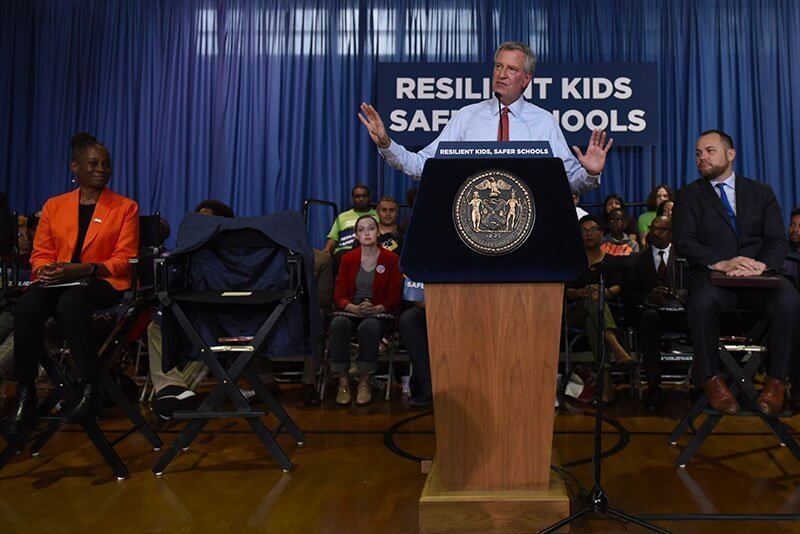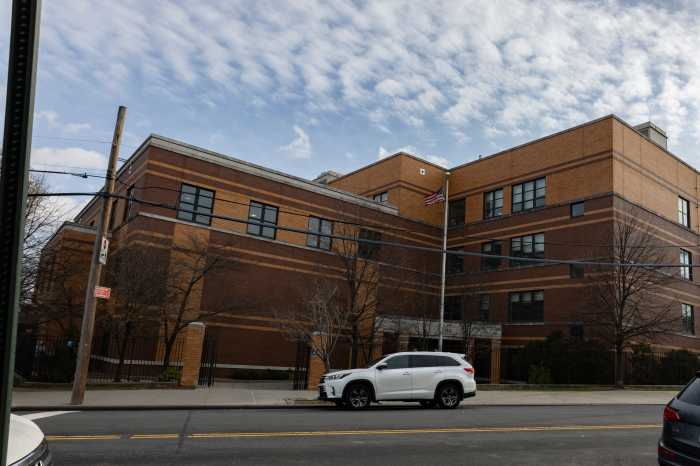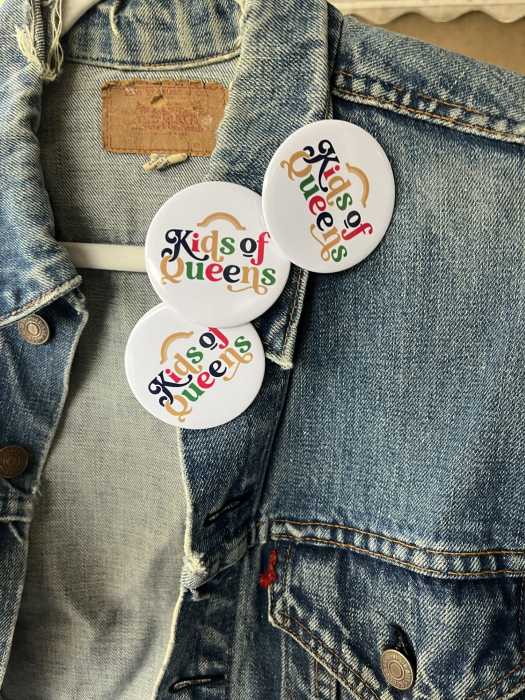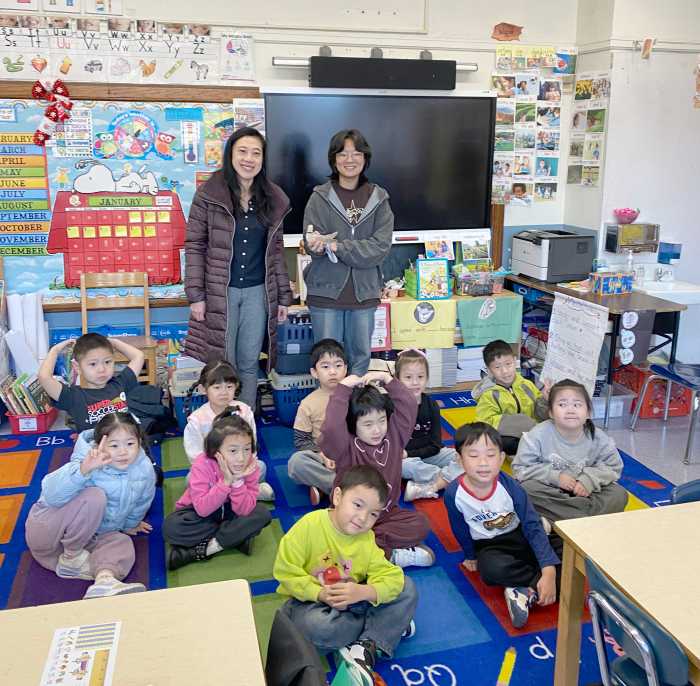New York City public schools will soon have to tools to help students manage their emotions and repair harm caused by crime.
Last Thursday, Mayor Bill de Blasio announced that all city schools would soon have access to Social-Emotional Learning (SEL) and Restorative Justice (RJ) practices in partnership with the National University System’s Sanford Harmony program.
The mayor in partnership with first lady Chirlane McCray and Schools Chancellor Richard Caranza confirmed that the Department of Education (DOE) would provide all elementary schools an SEL curriculum. In addition, clinical social workers will be on hand to provide earlier intervention for children in need.
On the middle and high school levels, DOE and the Sanford Harmony program will build RJ practices into the schools, allowing students to name their emotions, overcome conflicts and repair relationships.
According to the mayor’s office, these practices, which will be rolled out over the next three years, are important in order to help school communities be more proactive in the changing school culture and climate.
“We’ve heard from students, teachers and parents across our city, and as a result, we’re revolutionizing our school system and giving our kids the social-emotional tools they need to ensure they develop into healthy adults,” said Mayor de Blasio. “I’m proud that New York City is leading the way in our schools, using research-backed methods that encourage the whole growth of every student.”
Aspects of SEL are already part of the city’s Universal Pre-K program, where students are taught to identify and communicate their emotions and deal with stress. Lessons and activities for elementary school children include relevant training and lesson materials, daily student meet-ups where they learn how to engage with one another and a “buddy-up” system to teach students how to get along.
Once students progress into middle and high school, instructors will reinforce SEL tenants with Restorative Justice lessons. These lessons de-emphasize the sole reliance on punitive discipline and instead focus on emotion identification, conflict resolution and problem solving.
50 New York City middle schools will also receive more intensive programming through the Positive Learning Collaborative model in collaboration with the United Federation of Teachers. This restorative approach to changing school climate will be enhanced by the City Council’s new Thrive initiative.
The initiative will provide the schools with 85 borough-based licensed clinical social workers who will directly support teachers and help students facing emotional distress from the point of crisis to a handoff to long-term care, if necessary.
“As the sponsor of state legislation on this important topic, I applaud the mayor and chancellor’s efforts to make schools safe and welcoming environments for all of our students,” said Assemblywoman Cathy Nolan. “Schools must be places where students feel comfortable and can learn properly, and I look forward to working with our schools, students and families on this important issue at both the city and state level.”
Several other reforms will also be enacted as part of the new school climate package, including a reform governing how police operate in schools, a guide limiting in-school arrests for low-level offenses and a DOE discipline code keeping suspensions below 20 days except in cases involving serious or violent incidents.
“Thankfully, today’s announcement shows that those voices did not fall on deaf ears as the Department of Education is now dedicating their efforts on social-emotional learning and restorative justice as opposed to punitive justice. Students should never be taken out of a classroom in handcuffs or for extended periods of time as a form of punishment as those actions are prohibitive to solving each student’s problems,” said Councilman Donovan Richards, chair of the Committee on Public Safety.


































